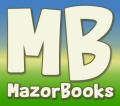Conservative View on Intermarriage
 The following statement was adopted on March 7, 1995
The following statement was adopted on March 7, 1995
by the
LEADERSHIP COUNCIL OF CONSERVATIVE
JUDAISM.
Organizations in the Leadership Council include:
• Federation of Jewish Men's Clubs
• The Jewish Theological Seminary of America
• The Rabbinical Assembly
• The United Synagogue of Conservative Judaism
• Women's League for Conservative Judaism
The Mitzvah of InMarriage -
Conversion
Keruv
- Standards
There is hardly a family in the United States unaffected by
intermarriage, and every one of us, as individual, and the
organized community, needs to formulate a stance. In the past,
intermarriage, (that is, marriage between a Jew and a non-Jew
who has not converted) was viewed psychologically as an act of
rebellion, a rejection of Judaism. Jews who intermarried were
essentially excommunicated. But now, intermarriage is often the
result of living in an open society, welcoming encouraging
individual differences rather than groups responsibility and
norms. Although results of populations studies continue to vary,
the 1990 National Jewish population study indicated that 33% to
50% of North American Jews are intermarrying. The data also show
that once they find themselves in that relationship, most of the
Jewish partners cease to practice Jewish tradition, and often do
not give their children a Jewish education or experience.
If our children end up marrying non-Jews, we should not reject
them. We should continue to give our love and by that retain a
measure of influence in their lives, Jewishly and otherwise.
Life consists of constant growth and our adult children may yet
reach a stage when Judaism has new meaning for them.
However, the marriage between a Jew and non-Jew is not a
celebration for the Jewish community. We therefore reach out to
the couple with the hope that the non- Jewish partner will move
closer to Judaism and ultimately choose to convert. Since we
know that over 70 percent of children of intermarried couples
are not being raised as Jews, thus further diminishing the
Jewish people, we want to encourage the Jewish partner to
maintain his/her Jewish identity, and raise their children as
Jews.
The unprecedented nature of the situation leaves us groping
between what works for us individually and what is good for Klal
Israel . In the face of the challenge, the Conservative movement
has formulated the following position:
We subscribe to a three tiered approach to intermarriage:
beginning with attempts at prevention, then the promotion of
conversion, and finally, when prevention and conversion fail to
occur, keruv to the mixed family.
The Mitzvah of Inmarriage.
We, are determined and committed to challenge intermarriage,
rather than accept it. Our first line of defense is to emphasize
the mitzvah of endogamy, "inmarriage" We must continue to
articulate that it is important for Jews to marry other Jews to
continue the ancient and historic mission of Judaism. . This
means that we must be willing to discuss the issue forthrightly
from our pulpits, in our schools, and in our youth groups, with
firmness but without rancor, sensitive to the pains born by
growing numbers of congregants who have intermarriages in their
families. Our goal should be to make the synagogue not only a
religious center but also a place where young adult Jews can
meet and interact.
We are convinced that we can change the trend, and we must act
on that conviction.
Conversion
Mitokh she-lo lishmah ba lishmah "One who performs an act for
other than its own sake may eventually come to do it for its own
sake."
If, despite efforts at prevention, an intermarriage seems likely
to occur, we must encourage halakhic conversion to Judaism.
We can never truly understand why a person decides to enter into
the Jewish faith. It is for that reason that we pray that
through the process of halakhic conversion that their intent
becomes clear to themselves and to God. The process of
conversion that is accepted by the Conservative movement has
three parts.
Learning (a period of study as determined by the officiating
rabbi) and growth toward observance of mitzvot.
Tevilah (immersion in the mikveh).
For men the additional requirement of Brit milah or Hatafat dam
brit (circumcision or symbolic circumcision).
It is our belief that not only should the non-Jewish partner
participate in extensive study but the Jewish partner should as
well. It is through the learning process that we will strengthen
the bond between the couple and between the couple and our rich
tradition. We should make this process as inviting as possible
so that the potential convert feels warmly accepted by our
community in the hopes of helping that person embrace our people
and our tradition with the utmost of sincerity. We know that
sincere Jews by choice add enthusiasm and strength to our
community. They enrich us by their adult understanding of Jewish
values, by their quest for spiritual sustenance, and by their
commitment to a Jewish way of life.
Keruv
In contrast to the notion of "outreach" in which we change our
self-definition in order to count the mixed-married among our
numbers, keruv connotes the attempt to bring Jews and their
non-Jewish spouses closer to us and to our established communal
standards.
The goals of keruv should be strengthening Jewish identity among
Jews, and affiliation with the Jewish community leading to the
establishment of a Jewish home and family in which Judaism is the
only religious tradition that is practiced. The target population
for keruv should include Jews and their non-Jewish significant
others, together with unaffiliated and underaffiliated Jews,
children of intermarried couples, and people in search of their
Jewish roots. Keruv should offer as its priority exciting and
enticing entry level programming which provides Jewish education and
enrichment, rather than solely a "support group" setting, and
intermarried families should be integrated into the life of the
community rather than being segregated by their intermarried status.
Segregation of the intermarried families in our midst may function
to reinforce and perpetuate that status, and undermine efforts at
conversion and the goal of an exclusively Jewish home and family.
Although it is certainly tempting from a membership standpoint to be
as inclusive as possible, we should be willing to recognize that we
cannot be all things to all people. For example, mixed families that
are not interested in raising their children exclusively as Jews may
be beyond the reach of the Conservative synagogue. Ideally, we would
like to reach all mixed families and convince them to lead
meaningful Jewish lives, but research shows this outcome is highly
unlikely in many, if not most, cases.
Standards
Therefore, we reaffirm the following standards as set forth by the
Committee on Jewish Law and Standards of The Rabbinical Assembly:
1. Matrilineal descent.
2. Rabbis and cantors affiliated with the Conservative Movement may
not officiate at the marriage of a Jew to a non-Jew, may not
coofficiate with any other clergy, and may not officiate or be
present at a purely civil ceremony.
3. Only Jews may be members of Conservative congregations and
affiliated organizations. However, non-Jewish partners are welcome
to attend services and to participate in educational and social
programs.
4. Ritual honors, such as aliyot to the Torah, are granted only to
Jews. Some congregations offer non-ritual roles in life cycle events
to non-Jewish family members.
5. Intermarriages should not be publicly acknowledged in any
official synagogue forum. Congratulations may be extended to the
parents or grandparents of a child born to an intermarried couple
provided that the child is Jewish (born of a Jewish mother, or, in
the case of a non-Jewish child, if both parents have committed
themselves to converting the child).
6. Sincere Jews by choice are to be warmly welcomed by our
community.
7. Sensitivity should be shown to Jews who have intermarried and
their families. We should offer them opportunities for Jewish growth
and enrichment.
In the midst of our confusion and pain we should not ask of Judaism
to adopt strategies which do violence to its integrity.
While the Conservative Movement acknowledges the individual and
social circumstances that have give rise to an increased rate of
intermarriage, it is committed to the ideological imperatives of
encouraging endogamous marriages and conversions. As always, at the
very heart of this movement stands our belief that we must find the
proper application of traditional Jewish norms and values to the
modern context.






 The following statement was adopted on March 7, 1995
The following statement was adopted on March 7, 1995
